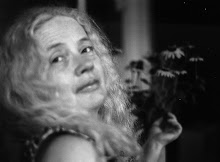In Prunewhip, Vermont in the fifties, children ran in packs, in and out of each other’s houses. One scene I witnessed almost every day, at least once, ran something like this: The father of the family heads out saying, “I’m going to the hardware store.” The mother immediately scoops up the nearest three-year-old and holds her out saying, “Take Baby Snooks with you.”
He’s trapped, since Baby Snooks is clapping her hands in joy. It was decades later when I realized that this was a control mechanism. Baby Snooks was her insurance policy that he would not follow the trip to the hardware store with four hours at a bar watching sports on the little black and white TV that sat on the shelf over every bar in town. Even though he didn’t help with housework or cooking, he was someone else for the kids to interact with while she went about her endless rounds of work. He wouldn’t come home drunk after spending a pile of money. Everywhere you went in Prunewhip, you’d see middle-aged men and three-year-olds traveling together..
Most husbands in the 1950s had total control of household funds. Women were given an allowance, out of which they were expected to buy groceries, clothing and school supplies for the children, and cleaning products. Anything left over they could - whoopee! - spend on themselves. Men often had expensive hobbies involving ham radio equipment, woodworking shops, power boats, fishing rods, guns. They went on weekend hunting and fishing expeditions with their friends.
Women, of course, wanted money. Most women had some kind of home business where they made what was commonly referred to as ‘pin money.” Women sold Tupperware and Avon. Some of them ran chickens in their backyards and sold the eggs. Others gave hair cuts and perms in a one-dryer hair parlor set up in a corner of their kitchens. They also saved Raleigh cigarette coupons and green stamps. They did a lot of dreaming - pouring over the catalog of items one could get for only three thousand cigarette coupons or five books of green stamps. They dreamed of new sewing machines and vacuum cleaners. A vacuum cleaner meant you didn’t have to roll rugs, take them out to the clothesline, and beat on them. Steam irons - that meant you didn’t have to roll and sprinkle the ironing anymore. Money meant you could buy a brand new prom dress for your 16-year-old daughter. She wouldn’t have to go to the prom in her cousin’s hand-me-down orange spaghetti-strap chiffon formal, which would have to be taken in and lengthened and would still be plug ugly.
If these women sound like a bunch of self-sacrifing ‘patient Griselda’s', think again. They were keenly aware of the inequities of their situation, and many of them had enormous contempt for men. I know this because my friend Joanne’s mother had a beauty parlor. We sat in a corner for hours on end listening to the women condemn men and laugh at them. Men were lazy, stupid and mean. Horror stories were met with gasps and lowered voices - we strained to hear, “You mean her arm is in a cast??” Tales of male buffoonery were told out loud, with lots of laughter. As the women warmed to their topics they would forget Joanne and I were there, and share strategies for avoiding sex with men, particularly when they were drunk. I lived in a household that had no men, and counted myself lucky in that regard. As a prepubescent female, I wondered why women ever got involved with these creatures in the first place. I considered the possibility of becoming a nun - it would be three hots and a cot, with no stigma of being an old maid. Furthermore, it would be a ticket to Heaven, and show all those morons in the sixth grade what a special and sanctified person I actually was. Win - win - win! At night I knelt by my bed and told God I was waiting for the call.
This is obviously not a fair and balanced account of gender roles in the fifites. In part, though, this was how it was. Although women have not achieved complete equity with men, we really have come a long way.
Sunday, April 25, 2010
Subscribe to:
Comments (Atom)




